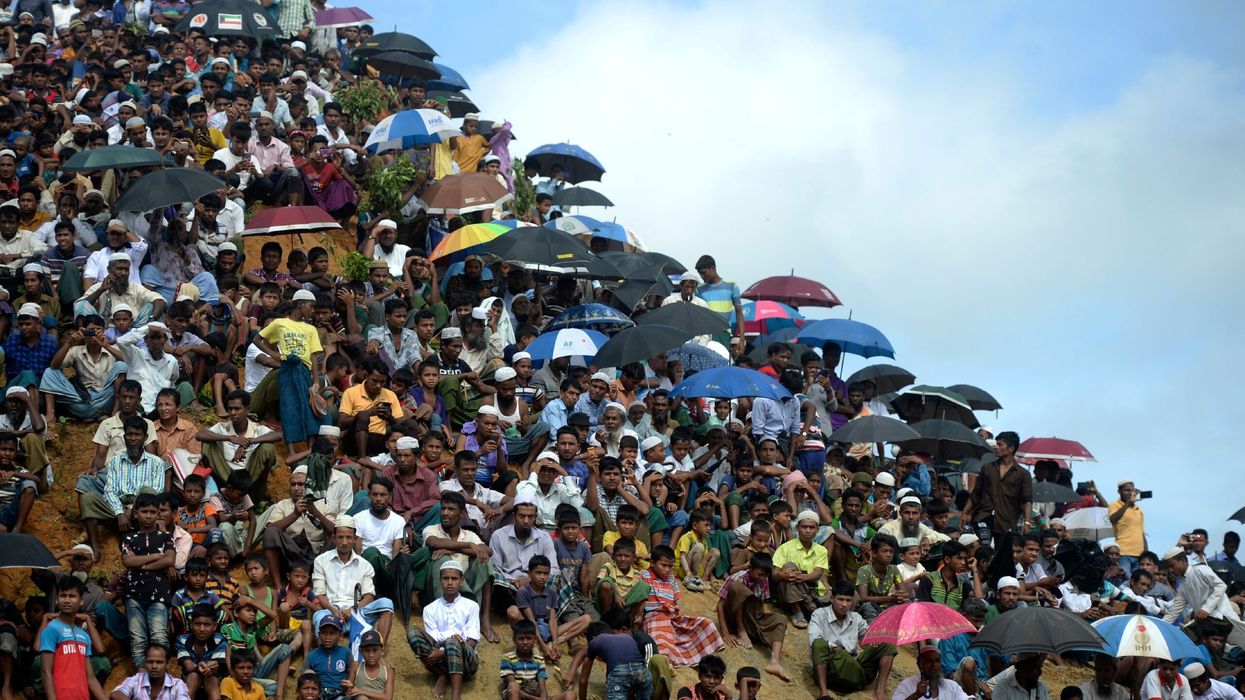BANGLADESH said last Wednesday (7) it will not allow any more Rohingya refugees from Myanmar to enter the country because supporting the huge numbers already there threatens its own security.
Muslim Rohingya have faced persecution in Buddhist-majority Myanmar for decades and nearly a million of them live in crammed, bamboo-and plastic camps in Bangladesh’s border district of Cox’s Bazar; most fled a military crackdown in 2017.
Myanmar’s military rulers view the Rohingya as foreign interlopers and have denied them citizenship, leaving Bangladesh with little prospect of repatriating them over the border to Rakhine from the world’s largest refugee settlement.
“We will not allow any more Rohingya to enter the country... they have already become a burden for us,” Obaidul Quader, the minister for road transport and bridges, told reporters last Wednesday.
“International aid has been significantly reduced. How long can we support them?”
Several hundred more people, mostly from the Chakma ethnic group and some Rohingya, have gathered on the Myanmar border to enter Bangladesh as fighting between Myanmar’s rebel forces and its junta regime intensifies, said Mohammad Mizanur Rahman, Bangladesh’s refugee relief and repatriation commissioner based in Cox’s Bazar.
Rahman said Bangladesh was “overburdened” by Rohingya. “It has been seven years and we have not been able to repatriate them,” he said.
“Keeping Rohingya Muslims in Bangladesh has become a threat to our security, our law and order. It is creating a vulnerable situation for crossborder crime.”
At least 327 border troops and police from Myanmar fled to Bangladesh in recent days amid escalating violence, Shariful Islam, a spokesman for Bangladesh’s Border Guard, said.
Minister Quader said Dhaka was in talks with India and China to ensure that neighbouring Myanmar’s internal conflict does not affect Bangladesh.
The country last Tuesday (6) summoned Myanmar’s ambassador to protest the escalating border violence that killed two people, including a Rohingya, on the Bangladeshi side.
“The aid agencies that were providing financial support previously are also pulling back and it is creating a lot of economic stress for Bangladesh,” Rahman said.
Rahman called on humanitarian organisations, such as the International Committee of the Red Cross (ICRC), to provide food and medical assistance to those caught in the violence in Myanmar due to ongoing conflict.
“It will ensure that people do not have to cross the border and come into Bangladesh. It will also reduce the pressure on us,” he said.
The UN refugee agency (UNHCR) did not immediately respond to request for comment.
“Bangladesh has generously provided sanctuary to those fleeing violence,” the agency previously said.
“UNHCR is in constant contact with the Bangladesh authorities and continues to advocate for civilians fleeing violence to have access to safety.” (Reuters)




